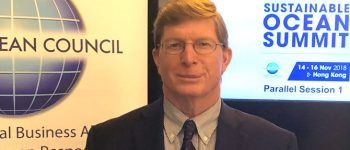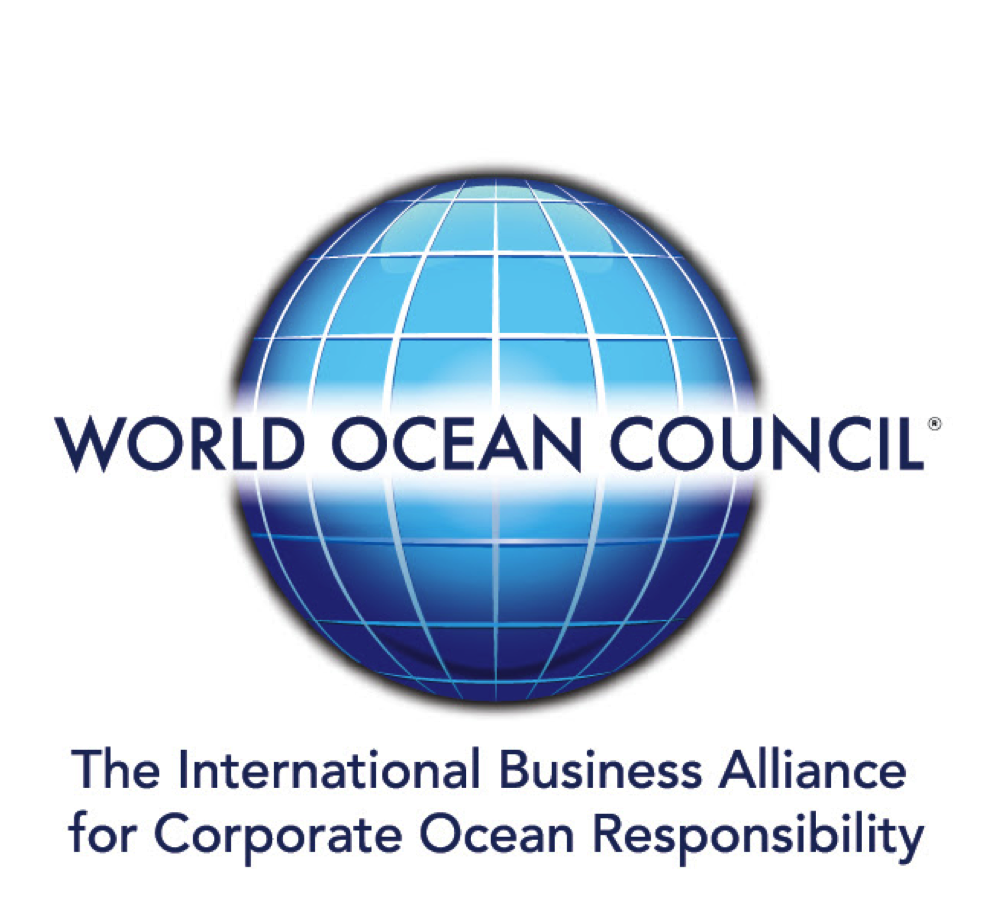For the original article in Portuguese: http://www.plataformamacau.com/entrevista/o-futuro-dos-oceanos-esta-muito-ligado-ao-papel-da-china/

Global ocean business leaders are gathering at the Sustainable Ocean Summit in Hong Kong this week to bring to attention the many problems and solutions required to protect the vast, precious but pollution-threatened resource that is our oceans.
The President of the organizing body World Ocean Council, whose mission is to bring together companies from various sectors to advance ocean sustainability and stewardship, says that while there is still time to save the oceans, we must act quickly. And China has a very important role to play in this.
Plataforma – This is the sixth edition of the Sustainable Ocean Summit. What has been achieved over the years?
Paul Holthus – We have been bringing together diverse sectors of the business community linked to the oceans and sustainable development. There has been an increase in awareness and understanding of the issues involved, namely the interrelated nature of the different activities and the need for multi-sectoral global coordination to address the challenges facing the future of the oceans and related business activities.
Plataforma – You spoke of a need for global coordination. Does this mean that the global governance system involving companies, governments, international and non-governmental organizations needs to be improved? Are we on track?
Paul Holthus – Yes, I believe we are. At the World Ocean Council we have done much to facilitate this connection between the various actors. What we want to achieve is a more systematic and proactive linkage between agents in the industry.
Plataforma – The conference is titled the “Sustainable Ocean Summit”, or “SOS”. Is it possible to act in time to save the oceans?
Paul Holthus – I do believe that there is still time. I’m an optimist, and I would not be doing this if I were not an optimist. Our challenges and problems will not disappear – some are being solved while others arise. We can address these challenges through concerted efforts by the business community in partnership with governments, international organizations and civil society. But there is much to be done that involves a level of trust and collaboration between different sectors of society.
Plataforma – Alarm signals are everywhere. A paper published recently in Current Biology reported that only 13% of the oceans have their ecosystems intact. When you look at these data do you not lose hope? Are governments and businesses even aware of what is at stake?
Paul Holthus – We have had success stories from concerted efforts by industries and authorities. Over the years the shipping industry and the International Maritime Organization have developed rules on maritime pollution and the disposal of solid wastes and oil from ship engines into the sea. Further regulations have been created via consultations among industry representatives, governments and international organizations. A reduction in pollution by ships has been verified.
There needs to be corresponding coordination in developing regulations to solve all other problems. This will only be possible through collaborative efforts because governments do not have the capacity to oversee the application of these rules in a space as vast as the oceans. We need steps that can be independently documented and verified to move forward.
Plataforma – Plastic pollution is another of the oceans’ large-scale problems. What can we do to prevent the oceans from being “drowned” in plastic?
Paul Holthus – Plastic pollution is part of a wider problem associated with solid wastes in the ocean. Eighty percent of this plastic originates from land, and in particular from seven countries located in Asia. Management of plastic origins on land – in coastal zones and river basins – is a priority. There needs to be rules on how and where wastes on land in coastal areas can be disposed. At the same time, it is necessary to ensure that sea-based business activities such as shipping and fisheries do not discharge waste into the water. There are already rules in place for the shipping industry.
Plataforma – This year’s conference convenes in Hong Kong, an international hub for the marine and maritime freight industries. How do you view the integration process in the Pearl River Delta and the issue of joint management of water and marine resources in the coastal cities of Guangdong?
Paul Holthus – I think it is a very practical way of addressing the development of coastal areas and estuary towns – by bringing together authorities and companies involved in tourism, aquaculture or maritime transport for a better understanding of the preservation of ecosystems. I consider this a significant development. That is why we are here in Hong Kong with this conference.
Plataforma – And China will be part of the solution on a global scale…
Paul Holthus – Yes, absolutely. In this conference we try to connect Asia to the world, but China in particular.
The major maritime companies are located in China – shipbuilding, aquaculture, fisheries and more. The future of the oceans is closely linked to the role of China.
José Carlos Matias from Hong Kong on 16 Nov 2018

